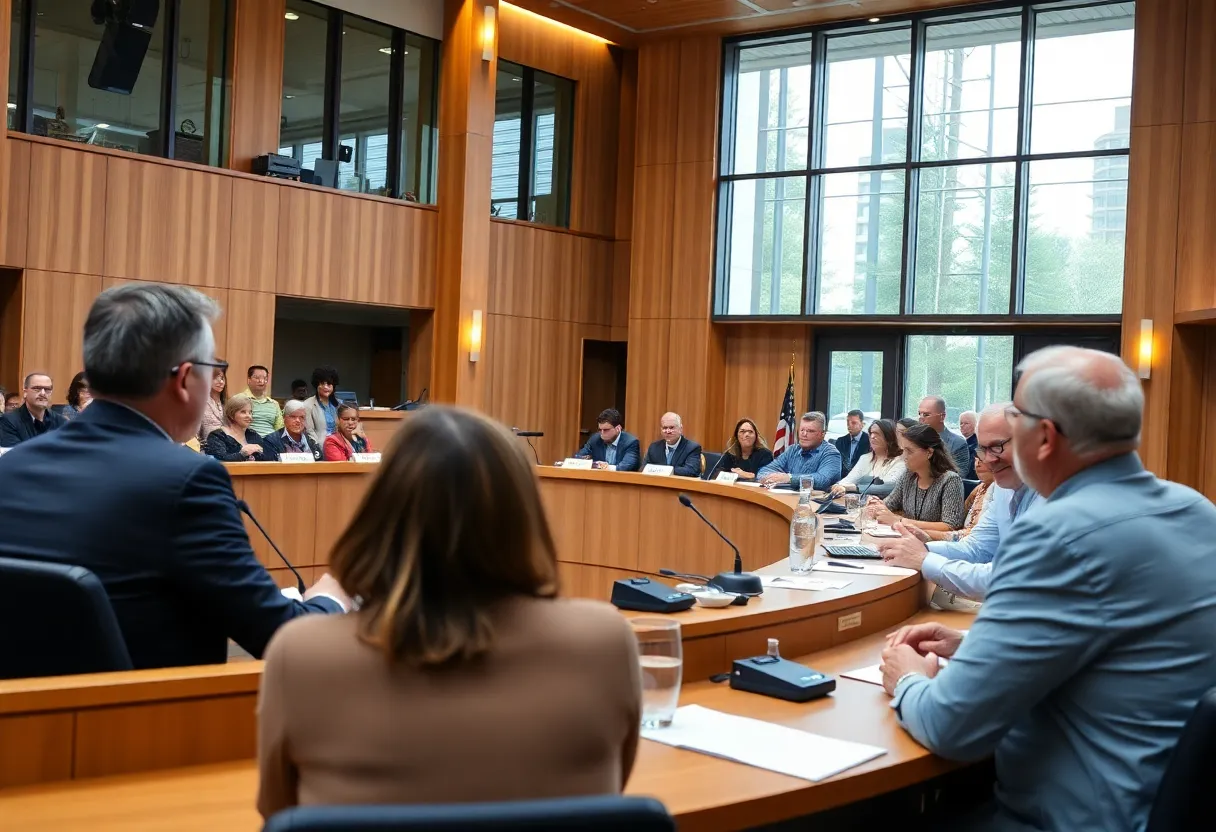News Summary
Chattanooga’s recent Industrial Board meeting delved into the new Payment-In-Lieu-Of-Tax (PILOT) policies approved to attract businesses. These initiatives, while aimed at economic growth through tax incentives, have raised concerns about transparency and accountability among community members. The adoption of new written policies by the city council aims to enhance oversight and address community doubts, especially concerning companies like Novonix, amid local advocacy for clearer communication.
Chattanooga Faces PILOT Policy Concerns
Chattanooga recently found itself at the center of a lively discussion as the Chattanooga Industrial Board held an important meeting this past Monday. The main topic? The new Payment-In-Lieu-Of-Tax (PILOT) policies that were approved by the city council earlier this year, aimed at attracting businesses to set up shop in the city.
Why the PILOT Program Was Created
The PILOT program originated back in 1985, with good intentions to stimulate economic growth. The idea is pretty straightforward: offer tax incentives to certain businesses in exchange for them creating jobs and making investments. Notably, last year alone, the PILOT agreements led to a staggering $27 million drop in revenue for both city and county general funds. Many businesses enter into these agreements for timelines that can stretch anywhere from 10 to 30 years.
Spotlight on New Policies
This recent meeting highlighted policies set forth by the Chattanooga Chamber of Commerce. These policies were designed to make it easier for businesses eyeing Chattanooga as a relocation option. The intent behind these changes is to ensure transparency and accountability in how the PILOT agreements are handled moving forward. It’s worth noting that previous instances have shown that not all businesses benefited long-term from these incentives; some companies have folded shortly after receiving tax breaks.
Concerns Echo in the Room
During the meeting, Janice Gooden, representing a local advocacy group, expressed her worries about the clarity of communication surrounding these new PILOT policies. Many folks in the community are eager for a clear understanding of how the agreements will be implemented and monitored. Meanwhile, advocate Helen Burns Sharp questioned how oversight would be handled moving forward, stirring thoughts about accountability in past agreements that have seen businesses go bankrupt soon after receiving their financial breaks.
One of the more controversial proposals under discussion was the new PILOT agreement sought by Novonix, a manufacturer of electric batteries, who plans to build a new plant at Enterprise South. Recently, this company has faced scrutiny due to layoffs, raising eyebrows about how taxpayer dollars are being allocated.
Transparency or Lack Thereof?
A notable point of contention was the venue selection by the Chamber for their meetings. Critics argue that holding discussions in a private office diminishes transparency, especially when considering community involvement. The upcoming meeting was indeed promoted through a legal notice, but opting for a public space like the Courthouse might have made it easier for more community members to engage in the process.
City Council Steps In
In light of the growing concerns, the Chattanooga City Council has recently adopted new written policies intended to bolster the transparency of the PILOT program. These policies now include safeguards such as requiring full payment of school taxes and stormwater fees from the companies benefiting from PILOT incentives. Moreover, an independent third-party review process has been introduced to meticulously evaluate PILOT applications.
City officials, including Mayor Tim Kelly, have recognized the importance of refining and improving these processes. His commitment to prioritizing written policies, along with engaging with community groups in crafting these guidelines, has been a refreshing approach to governance.
Future Prospects and Housing Initiatives
Looking forward, there’s hope for positive changes with the introduction of a new housing program linked to the PILOT initiative. This program aims to tackle the national housing crisis by promoting the development of affordable housing in Chattanooga. It will incentivize developers to engage in mixed-income projects, directly addressing the needs of the community. In fact, data reveals that a whopping 56% of renters in Chattanooga earn less than 80% of the Area Median Income (AMI), highlighting the urgent need for affordable options.
Your Voice Matters
As the city navigates these changes and strives for a balance between incentivizing businesses and ensuring community needs are met, there is no doubt that the voices of local residents will play a critical role in shaping the future of Chattanooga’s economic landscape. With effective communication and committed community engagement, there’s a bright prospect for both businesses and residents alike.
Deeper Dive: News & Info About This Topic
HERE Resources
Chattanooga Paves the Way for Affordable Housing
U.S. Air Force Stops Training on Tuskegee Airmen and WASPs
UTC Faces Housing Crunch Ahead of New School Year
New Savings Program for Hamilton County School Students
Chattanooga Faces Surge in Crime and School Threats
Chattanooga City Council Reviews PILOT Program Policies
UTC School on the Path to Higher-Tier Research by 2027
Key Education Legislative Changes in Tennessee Schools
Chattanooga City Council Votes on Revamped PILOT Program
Additional Resources
- Times Free Press: At Long Last, Written Rules for PILOT
- Local 3 News: City of Chattanooga Launches New Affordable Housing Payment Program
- WDEF: City Council to Vote on New PILOT Guidelines
- Chattanooga Pulse: Chattanooga Public Library Cards Now Available for Red Bank
- Nooga Today: Chattanooga Housing Action Plan
- Wikipedia: Payment in Lieu of Tax
- Google Search: Chattanooga PILOT program
- Google Scholar: Chattanooga economic growth PILOT
- Encyclopedia Britannica: Tax Incentive
- Google News: Chattanooga PILOT policies







